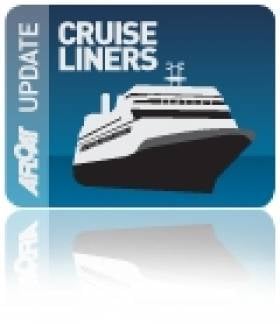Displaying items by tag: Ocean Nova
Cruise-Callers Set to Start Summer Season
Dublin Port last year had 88 cruisecalls and this number of vessels is to be closely repeated in 2011. One of the calls will be Princess Cruises 3,100 passenger Grand Princess. This was the first cruiseship of over 100,000grt to dock at Dublin which arrived on 31 August 2004 (click for photo on the day) and to read more about the cruiseship industry in Ireland from the IMDO click here.
Outside the capital the following vessels outlined are the first cruiseships to call at other ports in April. The season runs to September, though in recent years occasional calls are still made up to November.
The first cruise-caller at Waterford is Quark Expeditions adventure exploration vessel Ocean Nova. At only 2,118 tonnes the diminutive vessel is only 73m long and equally has the same number of passengers and a crew of 38.
Built in 1992 the polar adventure vessel has an ice-strengthened hull to enable the exploration of the icy waters of Greenland, the Weddell Sea and the Antarctic. A pair of Zodiac craft are provided for shore-landings.
The hosting of the Waterford Tall Ships Race Festival has led to funding of €1.7m from Failte Ireland to upgrade the city-centre's Frank Cassin Wharf. This will allow the large 'A' class tallships to berth and will be a lasting legacy of the festival. The wharf will then be used to berth cruiseships and other marine users. In total the crystal city is to welcome 12 callers to include the Crystal Serenity in July.
Cork is set to welcome 54 cruisecalls to include the return of the Cunard Line's 90,000grt Queen Victoria which made her first call to Cobh last year. The 2007 built vessel has a guest capacity for 2,000. The Cunard flagship Queen Mary is scheduled mid-September.
The deepwater berth at Cobh Cruise Terminal is capable of handling some of the largest cruiseships and which will see the return of the 122,000grt Celebrity Eclipse also in April.
Celebrity Eclipse made her maiden cruise and port of call to Cobh last year following her high profile repatriation voyage from Spain with stranded UK tourists arising from the fallout of the Icelandic volcanic ash-cloud. The 2,850 passenger €500m cruiseship which made an overnight call at Cobh during the May Bank holiday weekend.
From the south to the north at Belfast, the port's first caller on 24 April is the Ocean Nova which makes another appearance on the Irish cruiseship scene.
Belfast Harbour Commissioners have developed the 1km long Stormont Wharf to attract increasingly larger cruiseships to the city. The Ocean Nova's visit will mark over a dozen years since the first cruiseship docked in the northern capital.
In 2011 Belfast is scheduled to accommodate 30 cruise-calls bringing over 50,000 passengers to the city and surrounding environs.
























































